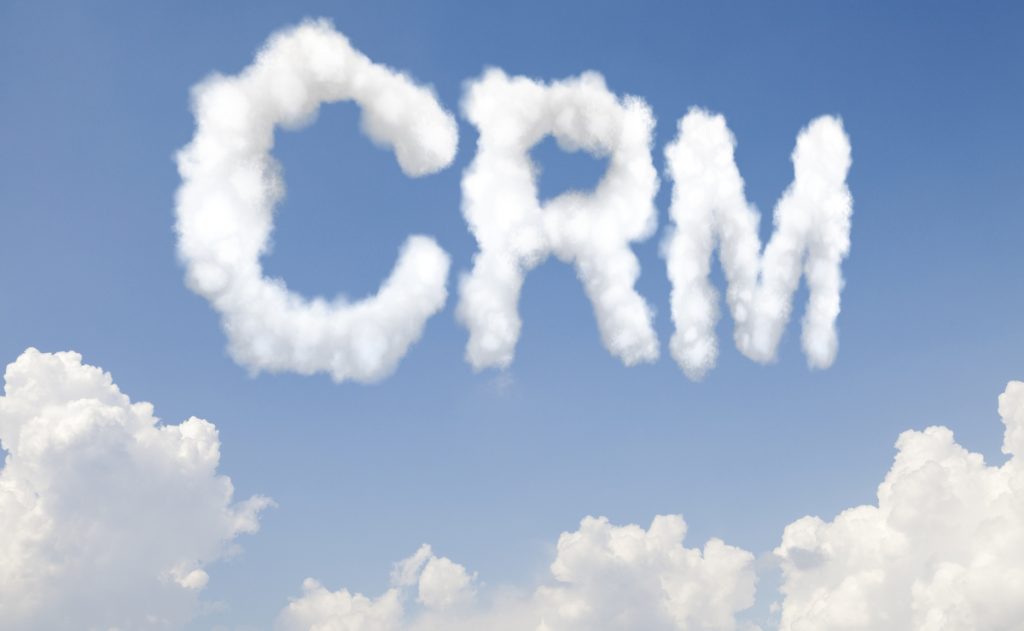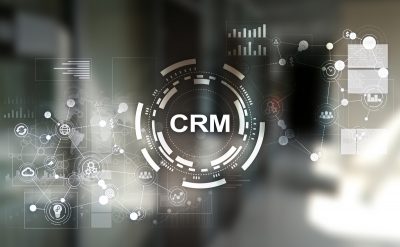CRM stands for customer relationship management. If you have never used the term before, you might have heard it echoing through your industry. The philosophy of CRM is simple: “put the consumer first.”
With the introduction of the internet came a wave of new marketing-technology (MarTech) to help businesses track, create, and manage consumer relationships in the form of a CRM.
Several industries across the globe (including your competitors) are using CRM software as it helps to save time and drive sales. Thus, delivering better consumer experience and increasing their loyalty toward your company. For instance, consumer-centric industries are about 60% more profitable than those industries that aren’t. About 86% of consumers are willing to pay more for a better consumer experience.
Let’s go ahead and take a look at what CRM is all about? And how will it benefit your organization?
CRM is a business software used by enterprises to manage interactions and relationships with clients. The software allows the team to build relations more competently and offer the finest consumer experience from assessment to purchase and beyond. As the organization expands, so does data, and it gets harder for individuals to manage it. This is where CRM comes into the picture. Its goal is simple, i.e., to enhance business relationships and help enterprises to boost productivity and stay connected to consumers.
A CRM system is exclusively used by marketing, sales, recruiting, consumer service, and business development teams to manage external relationships and interactions that boost success. A key role of CRM is to store consumer and product data, record service issues, recognize sales opportunities, and manage marketing campaigns, all at one location.
In simpler language, we can say that CRM software brings together all data from various units throughout the company to give one, holistic view of each consumer in real-time.
In today’s time, CRM can integrate with several business tools such as accounting and billing, document signing, and data surveys to give you an instant 360-degree view of your clients.
How does modern CRM help you and your team?
- Optimize team performance
- Measure the growth of business
- Identify and classify leads
- Increase referrals from existing consumers
- Provide superior consumer support
- Enhance product and services
CRM and cloud – a computing revolution
Move from on-premises CRM software to the cloud is the most important development in CRM systems. It has changed the way of doing business. Thus, cloud-based CRM helps organizations across the globe by moving services, data, and software into a secure online environment. Consequently, helping organizations to handle business from any corner of the world.
Following are the benefits of cloud-based CRM:
- Allows to work from any corner of the globe on any device
- Cost-effectiveness and scalability
- Helps to increase collaboration
- Faster deployment
- Automatic software updates
Therefore, we can say that CRM plays an important role in boosting business revenues by getting more consumers, increasing consumer loyalty, retaining existing consumers, and increasing profitability. This business software allows enterprises to build positive consumer relationships and customize industry services, thus boosting organizational productivity.
Now, if you are interested in implementing CRM in your business, chances are, you are already amazed by the number of CRM suppliers in the market. Discovering these suppliers and selecting the right CRM software for your organization can be tricky if you don’t know what to expect from this business software. No one knows your business better than you, so know exactly what you want before you look for the right CRM solution.
Before you start the selection journey, here are two important measures you can’t afford to miss.
1. Set your business objective
2. Involve all stakeholders
Once you know what to do, create a checklist, and use it during the CRM assessment process. Of course, the implementation of CRM in business is a daunting task. There is an assembling of right project managers, QA test engineers, team members, developers, or you may hire a competent CRM consultancy to do the work for you.
Now let’s concentrate on the points that should be present in your checklist before you begin the business software implementation.
Checklist for CRM requirements – a step toward success
- Select the right CRM
- Employee management and workflow automation – this feature allows sending reminders of scheduled sales call or notices when a new lead enters the system.
- Contact management – is the main component of CRM technology, enabling industries to act, collect, and store information from leads, prospects, and consumers.
- Security – offers tight security and maintains a running log of all executive and consumer activities.
- Sales and marketing automation – this feature helps in mass emailing, automatically captures lead from your website and assigns it to sales reps, and has the ability to create and nurture email campaigns.
- Mobile CRM – it helps to sync schedule and calendar across Windows, Android, Mac, and iOS. Thus, helping to manage projects and timesheets on the go and access lead from your mobile device.
- Deployment environment
- Client interaction tracking – it helps to track interactions with consumers, such as order status, invoices, and purchase history. However, the dashboard acts as a major hub of information that displays a record of consumer interactions with your brand.
- Business intelligence (BI) and reporting – this feature accurately measures and monitors consumer service factors. BI allows to monitor new consumer acquisitions to gain good customer allusions in the future.
- Database management
- Lead management – an important part of CRM is producing leads and managing those leads. This business software assigns leads with pre-defined standards and directs them to the appropriate sales rep.
- Campaign and marketing management – marketing automation is an important feature of CRM. Thus, it makes website and campaign activities available within your CRM interface and dashboards.
- Create a software implementation budget
If you follow some of the above checklist options, it will help you to go through the tricky decision process.
Let’s wrap up
It’s time to change the game…. “CRM is the engine that drives consumer trust and builds stronger consumer relationships.” The CRM is continuously booming as enterprises of all sizes and structures are implementing enterprise-level CRM solutions at a reasonable cost. A successfully executed CRM solution may offer enormous value to your organization, helping you to boost sales performance, thus reducing operational costs. Chances are your organization is already using one. But is it a suitable one as per your needs? For much such content on sales and marketing, do check out our latest whitepapers on Sales and Marketing.













